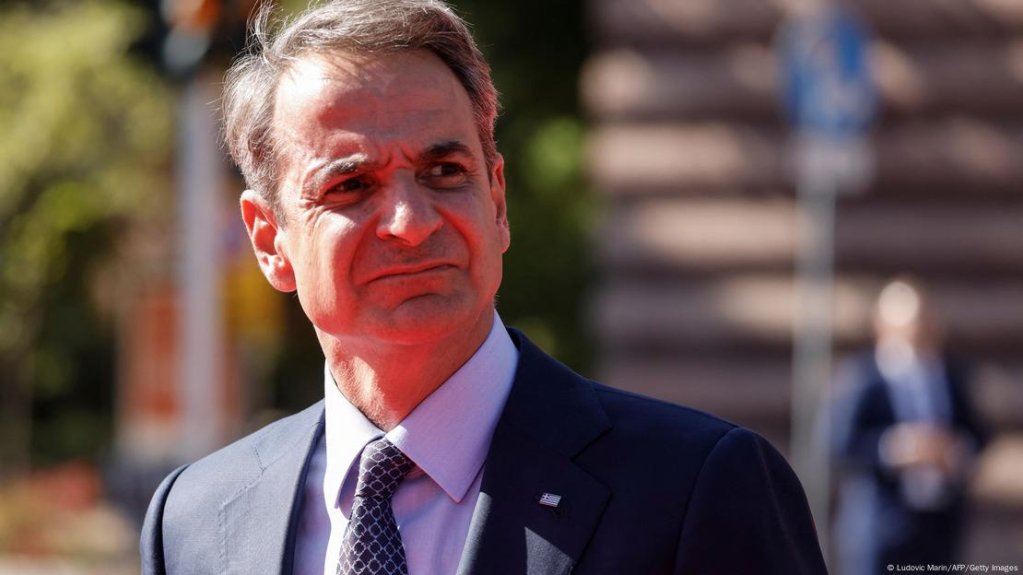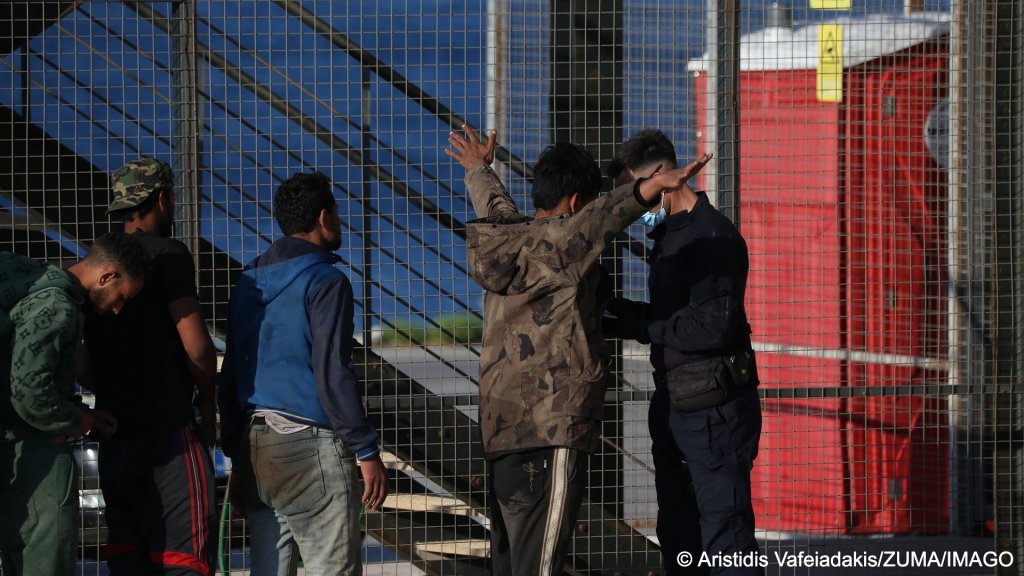The Greek Parliament voted to approve the temporary suspension of asylum applications from migrants reaching Greece from North Africa. The announcement comes amid a dramatic increase in irregular arrivals on the island of Crete. Human rights watchdogs widely slammed the measure.
On Friday (July 11), Greece approved a three-month suspension of asylum claims by people who have entered the country irregularly by sea from North Africa, using Libya as a departure point. According to officials, many of them are from Somalia, Sudan, Egypt and Morocco.
As reported by several Greek media outlets, the temporary measure, which takes effect immediately, prohibits those arriving from submitting asylum claims. This will mean that those who have arrived irregularly may be sent back to their countries of origin or country of departure without being given the opportunity to file a request for international protection.
The controversial suspension passed by an overwhelming vote of 177-74 but was met by fierce opposition from both left-wing parties and human rights organizations.
Euronews reported that Michael O’Flaherty, the Council of Europe's Commissioner for Human Rights, condemned Athens' emergency measures, calling them a breach of Greece’s international obligations. "It would legalize returning people to face a risk of torture and other serious violations," O’ Flaherty said.

Greek Prime Minister Kyriakos Mitsotakis defended the decision, saying it was "difficult but absolutely necessary" in light of a sharp rise in arrivals and would send a strong message to human traffickers and smugglers.
"Greece is not an open transit route. The journey is dangerous, the outcome uncertain, and the money paid to smugglers is ultimately wasted. Illegal entries will not lead to legal residence," Mitsotakis told the German tabloid BILD.
Dramatic increase in sea arrivals
The emergency measures follow a dramatic increase in Mediterranean crossings which have overwhelmed reception centres on the island of Crete. The southern Greek island lies in the eastern Mediterranean Sea and is approximately 1,140 kilometers from Libya.
Last week, a fishing trawler with 520 people on board was intercepted off Crete. The boat reportedly set off from Libya.

UNHCR data shows that 18,622 sea arrivals have been recorded as of July.
In an effort to manage the number of arrivals locally, the government is planning to establish a new closed reception facility on Crete. A second reception center is also being explored.
Addressing Parliament on Wednesday, Mitsotakis said that Athens is preparing for direct collaboration with Libya to stem sea arrivals by intercepting them at the point of departure.
In addition, he said that the country's armed forces are prepared to cooperate with Libyan authorities to prevent migrant boats from departing.
Crete is also one of the top tourist destinations in Greece. With the summer holidays underway, tour operators and locals have expressed anger and anxiety over the possibility of cancelled bookings due to the number of arrivals.
Bolstering border controls
Greece, which is geographically located at Europe's external borders, remains a key entry point to Europe for people fleeing conflict and hardship in their countries of origin.
According to UN refugee agency data, over 60,000 migrants landed in Greece last year, the overwhelming majority by sea. In comparison, around 48,000 arrived in 2023.
With Greek authorities stepping up patrols along the eastern maritime border with Turkey, traffickers are reportedly choosing the longer and more dangerous route across the Mediterranean from North Africa, particularly Libya.
